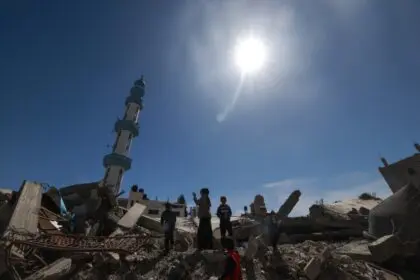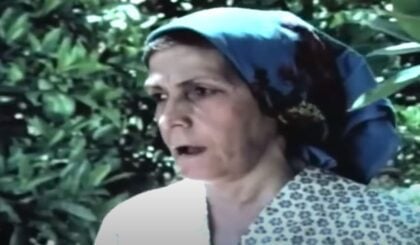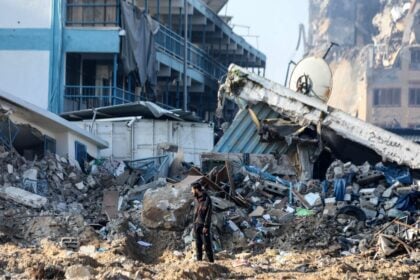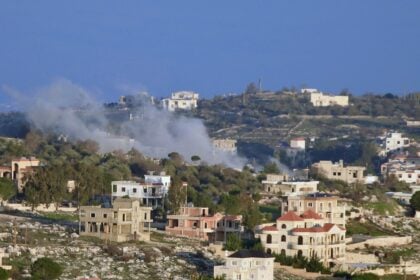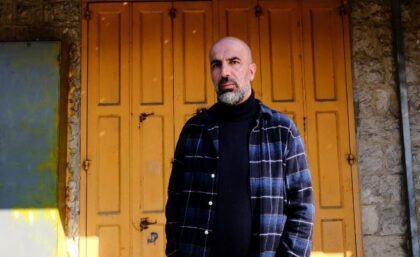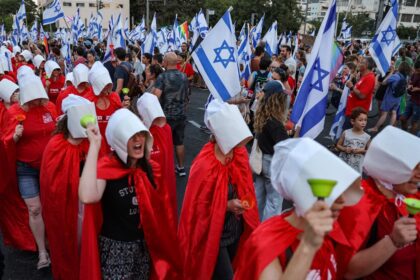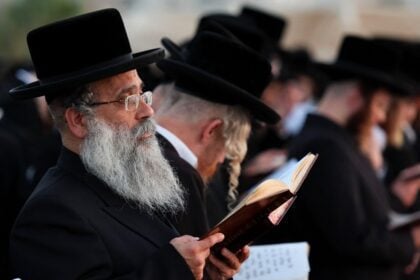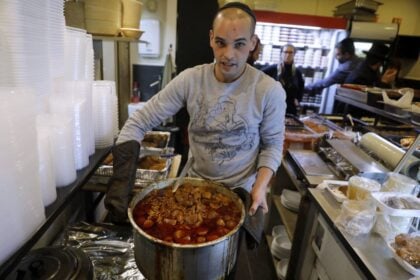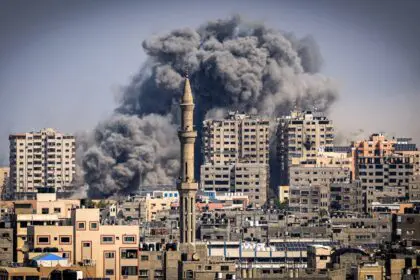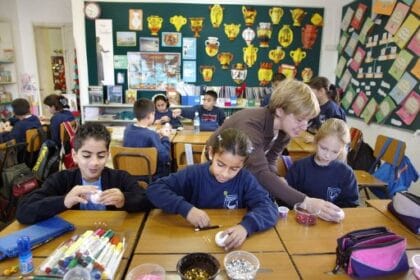
Introduction
Israeli society is a melting pot of cultures from all over the world, a society of contrast and vehement political debate, a land of freedom of expression alongside stringent military censorship, of religious orthodoxy that impregnates law and restricts civil liberties. It is also a society in which the military is inescapably present in everyday life, and one characterized by a poignant dividing line between the various communities.
Civil Society
Civil society in Israel is very strong. There are hundreds of organizations concerned with human rights, women’s rights, the environment and religious issues. Most organizations are working towards a solution to the conflict with the Palestinians. A few NGOs are working with Palestinians from the Occupied Palestinian Territories in order to achieve a peaceful solution to this conflict.
Such activist groups can operate relatively freely within Israel. They are, however, often monitored by the state. During protests, for example, the police register participants by taking photographs of them. Famous NGOs are Peace Now, an organization that was founded in the early 1980s when Israel began its military operation in Southern Lebanon.
Other organizations dealing with the conflict and the militaristic character of Israel’s society are Yesh Gvul, which supports conscientious objectors, and New Profile, a feminist organization that protests against the militarization of society. Breaking the Silence and Combatants for Peace are groups initiated by former combatants who seek a peaceful solution to the conflict with the Palestinians. Most organizations dealing with the conflict are based in Jerusalem and their activities often take place in the Occupied Territories.
Family
Within Judaism, family life is central. Starting a family is strongly encouraged socially, but is also supported by state services. It was strengthened by Jews who had survived the Shoah, for whom starting a family meant breaking away from the horrible past.
The birth rate in Israel today varies from group to group, with Muslims and Orthodox Jews with the highest birth rates. The general birth rate is 22 births per 1000 inhabitants. The total fertility rate was 3 in 2010 (Israeli Central Bureau of Statistics, 2010).
Within most Jewish homes the nuclear family is the basic structure. Strong relations are often maintained with the extended families. On Shabbat (Friday evening/night) many families come together for a festive meal. However, new groups of immigrants have brought new forms of family life with them.
The Russian immigration, for example, brought many single mothers, while the husband stayed behind in Russia. Furthermore, within these families the grandmother, who often lives in the same house, plays a significant role. The average family size is 3.7 (Israeli Central Bureau of Statistics, 2010).
Ethiopian immigrants came from a rural background with large extended families and a dominant male heading them. However, the transition to Israel has changed this significantly, and within the community 30 percent of the families consist of single mothers today.
Palestinian families in Israel often live with extended families within the same building; parents build an extra apartment on top of their own for their children and their spouses and children. The birth rate amongst Israel’s Muslim citizens is higher than among the secular Jewish majority, which is seen as an issue of concern by many Israeli Jews, as it could endanger the Jewish character of the state.
Jewish women in Israel are firstly seen as carers and nurturers. Their fertility is very important, while the men are expected to defend them (and the nation as a whole). Within secular Jewish society, women are part of public life, often have a career and are independent. However, their participation is not equal to men’s (See Position of women).
For the orthodox community things are different. Orthodox women have less freedom in public, they dress modestly and do not interact with men other than their husbands or kin. They do, however, often work outside the home to provide for their large families, especially when the men spend their days in the Yeshiva (religious school).
In Muslim (and Christian) families, which are more patriarchal, women often have a subordinate position. Their honour is the honour of the family, and hence girls and women are often protected from the outside world. Compared to Muslims in neighbouring countries, however, Palestinians in Israel often enjoy a more modern lifestyle.
Women
Although known for their participation in the military, which gives them a powerful image, Jewish women in Israel do not always enjoy an equal status. According to the law, they are equal to men: in 1951, the Women’s Equal Rights Law was enacted. However, in many instances women are not seen as equal and do not enjoy the same opportunities as men. Because of the centrality of the military system and the notion of defending the state, women are pushed into traditional positions of child rearing and jobs providing assistance.
The men are needed for the important work of defending the state. Due to the fact that family law lies with the religious institutes in Israel, women, both Jewish and Muslim, are discriminated when it comes to issues such as marriage and divorce. Differences also occur between different groups of women in Israel, with the Ashkenazi Jewish woman as the most privileged group, before Jewish Mizrahi, Ethiopian, Palestinian and Bedouin women.
In regards to employment and salary, women’s positions are much lower than men’s, and their wages are significantly lower. The majority of women work in ‘typically feminine’ job categories, such as teaching, nursing, services and administrative functions.
In 1925, Jewish women succeeded in achieving the right to vote and to be elected in representative institutions (at that time called the Yishuv). However, the political position of women has not been very strong. Israel has only had one female Prime Minister, Golda Meir, in the early 1970s. In the current Knesset, the Parliament, only 27 of the 120 members are women.
Youth
34.4 percent of the Israeli population is aged 18 or below, according to the Central Bureau of Statistics (2011). Israeli youths generally live in a secure environment with their families and friends. They usually stay at school until at least the age of 16.
The lives of Jewish youths are influenced from a young age by their preparation for military service. At 16 years, youngsters are called up for an initial interview. In secondary school, a military official is often available to inform the students about the opportunities when entering the military and about the importance of military service.
After the compulsory service, most Israeli youngsters head off around the world on trips to relax and enjoy some freedom. Most go to India, Thailand, Australia or New Zealand.
In some of these countries the young Israelis have become notorious for being disrespectful and rude to the local population. Some places, in India for example, have signs saying that Israelis are not welcome. The leisure activities of youngsters, as in most other places around the world, revolve around sports, going out to pubs and clubs, sitting in coffee bars and going to the cinema.
Education
In general the degree of education in Israel is high, although there are differences between the different ethnic groups within the country. Every child has the right to receive eleven years of free education, from kindergarten to the 10th grade. Literacy is 97.5 percent (CIA, 2012). 52 percent of the population aged 15 or older enjoys 5 to 12 years of schooling, 22.5 percent enjoys 13 to 15 years.
Inhabitants of development towns (mostly Mizrahi and today also Ethiopian for example) historically had fewer opportunities and were forced into low paid or unskilled labour. These imbalances are still seen today; students from development towns score lower than students from more affluent localities. University enrolment is also almost half of that among students from affluent towns.
Palestinian citizens in Israel score even lower, and in 2006-2007 only 5.2 percent of 20-29 years old were enrolled in a university, compared to 10.2 percent of the same age group from affluent (Jewish) localities. The numbers at polytechnics are not much better: 9.1 percent of 20-29 years old from affluent communities were enrolled, compared to 5.5 percent from development towns and 2.4 percent from Palestinian localities.
The total state budget for education in Israel is 41.8 billion NIS (11.8 billion USD) (2013), slightly higher than the defence budget. The total expenditure on education is 7.2 percent of GDP in 2012, which is higher than in most of the member states of the Organization for Economic Co-operation and Development (OECD). 13.6 percent of total expenditure was spent on education in 2012.
Health
Israel has an extensive health care system. In 1995, the National Health Insurance Law took effect. It asserts that the state is responsible for ensuring the health care for all its residents by means of a ‘health basket’. The contents of this basket vary from time to time, depending on the funds invested in it by the state.
There are several health care funds from which people can choose, and these are responsible for providing most health care. All Israeli citizens pay a health tax to the National Insurance Institute, according to their income.
In recent years, erosion has taken place of the state investments in the health basket. In 2007, it should have risen to 32.3 billion NIS in 2007, whereas in reality it amounted to 25 billion NIS. This erosion has had a negative effect on the consumer.
Some expensive medications, for example, were excluded from the basket, forcing patients to pay for them themselves, if they did not pay extra premiums in addition to the health tax. This development has also led to inequality between households, as not everyone can afford to pay premiums for extra services.
Many health issues are medicalized to a much larger degree than in many European countries. Medicines are prescribed in greater quantities, and pregnant women undergo a higher number of tests and receive more care than women in other countries. Women give birth in hospitals, usually with an epidural.
The total expenditure on health care was 7.7 percent of GDP in 2011 (World Health Organization, 2011), lower than in most of the Organization for Economic Co-operation and Development (OECD) member states. The health budget for 2012 was 20.6 billion NIS (5.8 billion USD), according to the Ministry of Finance.
Poverty
The public sector’s low efficiency is often contrasted with that of its private counterpart, where economic survival of businesses depends highly on efficiency. The recent upswing of Israel’s economy, mainly in the sphere of high-tech, has a tendency to mask problematic developments in the lower reaches of private sector enterprise.
Only part of private sector businesses is capable to ride along on the wave of Israel’s high-tech achievements and the concomitant spending of an increasingly visible leisure class. But like traditional industries, the domestic service sector, consisting of numerous small to medium sized firms is facing increasing stagnation, to a large degree occasioned by limits in purchasing power and capital savings within large sectors of the Israeli population.
Prominent economists are alluding to the dire consequences of a growing socio-economic polarization of Israel’s society. They are concluding that the benefits of economic growth are not being distributed evenly. Today, 20 percent of Israeli families are living below the poverty line, a percentage that rises to 35 percent for families with young children.
The incidence of poverty increases with family size, below average education and single person households. Such factors are most prominent among Israel’s Palestinians and religious-orthodox communities, known as the ‘Haredim’.
Over 2.5 million Israeli adults are economically inactive, leaving another 2.6 million to work and provide public financial resources by paying taxes. This proportional equation, worrisome as it is, runs the risk of tipping to the other side on account of the much higher birth rate in Israeli-Palestinian and Jewish-Haredi communities.
In recent years Israel has begun cutting down on welfare payments to disadvantaged citizens while launching programs to stimulate unemployed workers in acquiring better professional skills. While recognizing the partial merits of such programs, Israeli economists are contending that far more is needed to avoid a further marginalization of Israel’s disadvantaged communities.
Civil Rights

The first law the State of Israel passed after its establishment in 1948, was the Law and Administration Ordinance. This Basic Law stipulated that the laws prevailing in the country before its rise to statehood would remain in force as long as they did not contradict the principles of the Declaration of the Establishment of the State of Israel.
As a result, the Israeli law system includes remnants of Ottoman law, of the laws that prevailed during the British Mandate of Palestine, and aspects of Jewish religious laws. Furthermore, a process of judicial interpretation of laws has evolved. In that process, civil rights and basic freedoms have been formulated, such as the freedom of speech, assembly, religion and conscience.
Nevertheless, the Association for Civil Rights in Israel (ACRI) notes that ‘to date, all attempts to anchor human rights in Israel in a Basic Law on Human Rights have failed’.
The main obstacles have proved to be the opposition of religious political parties, ‘which viewed the legislation as a threat to the status of religion’, and in particular ‘security concerns and the desire of the authorities to maintain legislation (…) that grants wide authority to disregard civil liberties in the name of security’.
Moreover, although the absence of a constitution or bill of rights ‘has not prevented the establishment of legal norms for guaranteeing basic human rights by, in particular, the High Court of Justice, this court is not authorized to rule that a law passed by the Knesset or in effect since the days of the British Mandate is unconstitutional (given the absence of a constitution), even if it believes that the law violates basic human rights’.
According to ACRI, personal status is one of the areas in which the absence of a constitution or comprehensive bill of rights leads to violations of basic human rights. ‘One of the clearest examples is marriage and divorce law.
In Israel, marriages and divorces are authorized by religious rather than civil law, meaning that the only individuals permitted to record marriages in Israel are those recognized by the Minister of Religion (and the Chief Rabbinate, for Jews) as qualified to do so, and that laws in the matter of Jewish marriage and divorce in Israel are “the laws of Torah”.
This situation, which has existed in Israel since its establishment, prevents many Israeli citizens from exercising their right to marry and divorce freely, according to their own choice and conscience.
Corruption
In recent years, the world of Israeli politics has faced some major corruption scandals. While in 1997 the anti-corruption group Transparency International listed Israel in its top 10 of least corrupt political entities, in 2009 it had fallen to 32nd place and in 2012 it had dropped further to 39th.
Most scandals involve illegal acceptance of money from foreign sources. In 2008, Prime Minister Ehud Olmert, former mayor of Jerusalem, had to resign as leader of the political party Likud on account of such accusations, but current Prime Minister Benjamin Netanyahu, current Minister of Defence Ehud Barak, former Prime Minister Ariel Sharon, and current Minister of Foreign Affairs Avigdor Lieberman have also been accused of such acts (see Political parties).
Besides financial scandals, a few very serious sexual scandals have surfaced in the past years. The Minister of Justice, Haim Ramon, was accused and found guilty of indecent acts with a female soldier, and former President Moshe Katsav was accused of rape and several instances of sexual harassment. Katsav signed a plea bargain with the Attorney General and resigned. Ramon, however, is still serving as a member of the Knesset.
Crime
Crime rates in Israel are not very high. Most crime concerns car thefts, break-ins and physical assaults, not infrequently within the home (domestic abuse). Research has indicated, however, that the reporting of crimes by victims is lower than in most Western (European) countries, as they do not believe the police will be able to do anything for them. Most car thefts are connected to ‘chop-shops’ in the Occupied Palestinian Territories, where stolen cars are taken apart and sold for parts.
In recent years, organized crime has become more and more visible in Israeli society. Numerous underworld figures have been murdered in mob-like situations. It is estimated that billions of dollars of ‘dirty money’ are circulating in the country. Many underworld figures have ties with the United States, Russia or Europe. The businesses they deal in are numerous and vary from drug smuggling to waste management and the trafficking of women. Drugs (heroin, cocaine and marihuana) enter the country mostly through Lebanon and Jordan.
Society and the Military
To this day, Israel has compulsory conscription. Men are called up for three years, and women for eighteen months to serve in the Israeli Defence Forces (IDF). Exempted from this conscription are all Palestinians living within Israel except for the Druze community. A small minority of Bedouins volunteer for the IDF, often as trackers. Jewish Orthodox men who are students at a Yeshiva (religious school) and also Orthodox women are exempted from military service.
The presence of the military in Israel’s daily life is often overwhelming for the first time visitor. Everywhere one can see soldiers with their weapons, walking on the streets, at bus stations, in shopping malls and even in discos. When making new acquaintances, for example, young people often use military service as one of their central points of reference. Where did somebody serve (in what unit or battalion), with whom, and what rank did he or she have? This information helps Israeli youths to categorize a new acquaintance, just as information about family, occupation and place of residence can serve as reference points.
The military service of Jewish Israelis is still perceived as a natural part of life. One ‘gives’ to the nation and receives services and protection in return. Lately there have been some cracks in the support for the military, but it is still central to Israeli life.
Military service and rank during one’s conscription, but especially for professional military personnel, have a great influence on occupational possibilities in civilian life. Men benefit almost exclusively from this. Women are excluded from important positions within the military and this marginality is carried over into civil society, where work possibilities are linked to a person’s military career. Palestinian citizens in Israel are excluded from some state services because they do not serve in the military.
Latest Articles
Below are the latest articles by acclaimed journalists and academics concerning the topic ‘Society’ and ‘Israel’. These articles are posted in this country file or elsewhere on our website:


